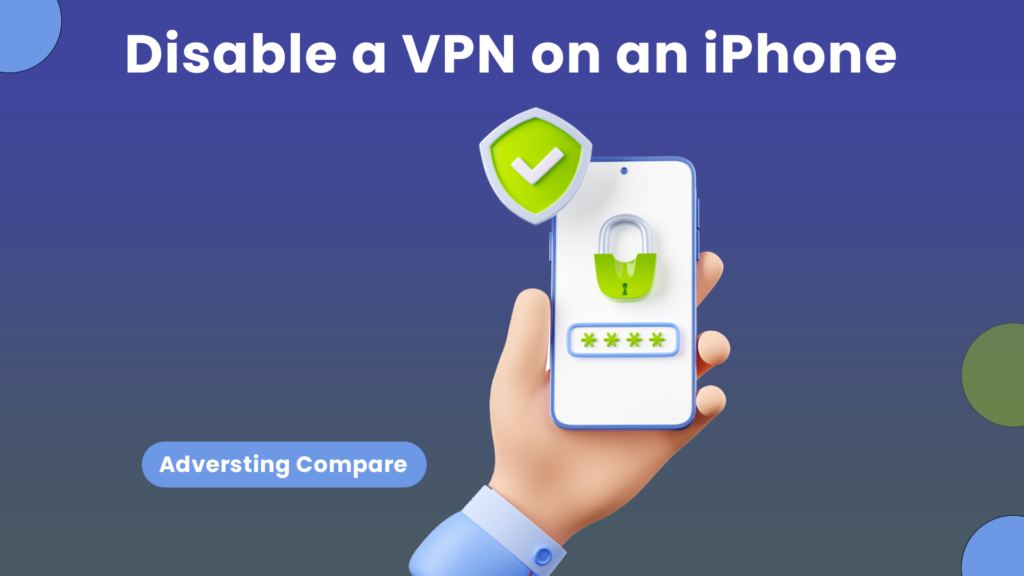Do you own an iPhone? Are you brand-new? Is it a bit unclear at times? Would you want to look up your answers online? Is one of the problems turning off the VPN? If so, you should read this article. Some nations may make it difficult to use iPhones since not all websites can be accessed with them.
There might be a lot of other challenges just to getting work done and using the internet. You need greater privacy and security for some activities—whether they are personal or professional—than you need for everyday surfing. There are situations when utilizing public WiFi alone puts you in danger.
Additionally, you might need to install software or an application on your iPhone in order to secure your phone and data. This is where virtual private networks, or VPNs, come into play. All web users are aware of it. Although many may not be aware of their exact functions or methods, everyone is aware of their name and mission.
We shall make an effort to educate people who don’t know much about the subject so they can grasp it. When someone is new, their first thought is usually, “What is a VPN?”
VPN: What is it?
Virtual Private Networks, or VPNs, are programs or applications that assist your device in concealing the user’s identity and maintaining secure connections. In essence, it prevents the internet service provider from using the directions to get to a certain website.
It will route the traffic to the VPN service provider’s server, enabling you to mask your identity and activities. This preserves your anonymity. With the use of a VPN, you may get beyond several firewalls and geographical limitations while also concealing the IP address of your iPhone.
Your connection to any other network on the internet will become secure as a result. You are free to use this program on a personal or official basis whenever you like. It will also assist you in hiding who you are.
Types of VPNs:
- SSL VPNs: Employees must use this type of VPN to secure their connection and lower the risk of data compromise because not all employers allow their workers to work from home with their own computers. This is accomplished through a network that uses an HTML 5-capable browser, and nearly all browsers support HTML 5. Essentially, an ID and password provide access to the data.
- Site-to-site VPN: This kind of VPN, as its name implies, entails using a private network to mask sensitive information before enabling users of these sources to view each other’s data.
A side-to-side is typically used by businesses with several, dispersed branches that are all connected to one another via wide area networks. Prior to the advent of wide area networks, the same businesses utilized local area networks to link their own computers to one another.
Site-to-site VPNs are not very flexible and are typically utilized by large enterprises that need a lot of networking. They are also difficult to set up.
- Client-to-server VPN: By creating a link between your computer and the company’s server, a VPN protects your data. It implies that workers may use the company’s networking from the comfort of their own homes. This forces the user to utilize the internet server of their business to connect to the internet.
When accessing any kind of public network, people tend to utilize this more popular kind of VPN.
Paid vs. Free iPhone VPN:
For iPhones, there are several commercial and free VPN alternatives available. You can utilize any of them for any other reason you would like to have done or to keep your data protected. Although the premium options are excellent, some people would rather not spend money on software or an application that they will only be using once.
If consumers are forced to pay for the service for a whole month or longer without even checking it out, it may be tough for them to even begin utilizing the platform. This also makes it challenging to choose a reliable business. Nevertheless, because there are several VPNs available with free trials, you don’t need to worry about this problem anymore.
They offer you a free trial of a few days so you can choose the one that best suits your demands and your iPhone. After utilizing the service for free for a few days, you are then required to pay for it. When it comes to new customers, VPN providers that include this feature always rank well.
VPN advantages:
- You can get around geo-restrictions that prevent websites from streaming music or video with its assistance.
- It will enable you to view stuff that isn’t available in the nation you now reside in or on your own.
- It will assist you in safeguarding your iPhone and its contents from dubious WiFi networks, such as open WiFi.
- By concealing your internet location, it will assist you in maintaining your anonymity.
- It will provide you with protection.
- Additionally, region-based eCommerce can save you money.
- What Could Take Place If You Begin Using These Services?
You become really used to the program once you begin using it. However, what happens when you don’t want it turned on? Being unfamiliar with certain settings may be a challenge for those who are new to using iPhones or have never used a VPN on their device.
Here’s where people begin searching for it on Google! Everything is fun and games while using a VPN on your iPhone—until you attempt to turn it off and find that you can’t. It could also mess with the locations on your social media accounts, which could annoy you.
Methods For Turning Off An iPhone VPN:
There are easy methods for an iPhone user to disable a VPN. One should be able to turn off services while not in use. We’ll talk about two approaches to finishing it. One thing to be aware of is that certain of your websites and apps may stop functioning if you turn off your VPN.
Method #1:
- Go to the Settings app in order to disable the VPN on an iPhone.
- After that, you will reach the “General” area.
- You will then need to scroll down and select the “VPN and Device Management” option.
- Click the ‘VPN’ option at the top of the page if it isn’t accessible.
- The VPN may then be turned off by tapping the status toggle switch.
- You’ll need to wait for the “Disconnecting” notification to appear.
- The VPN will be turned off and the toggle switch shifted to the left.
After completing these steps, if your VPN is already active, it indicates that the program has the “Connect on Demand” setting enabled. You must hit the “i” button and turn off the “Connect on Demand” feature in the program in order to prevent this.
Method #2:
You may also disconnect your VPN by using the application itself. However, not every VPN service or app you use may have this option available. Most of the programs will allow you to select. It is necessary for you to:
- Launch the software.
- Navigate to the Settings.
- Seek out the option to “Disconnect.”
- It’s possible that the Option is located outside of the “Settings.”
Top VPNs for iPhones:
Here are the Top VPNs for iPhones in 2025 and 2026.
- Surfshark
- NordVPN
- Atlas VPN
- Ivacy VPN
- PureVPN
- Urban VPN
1. Surfshark:
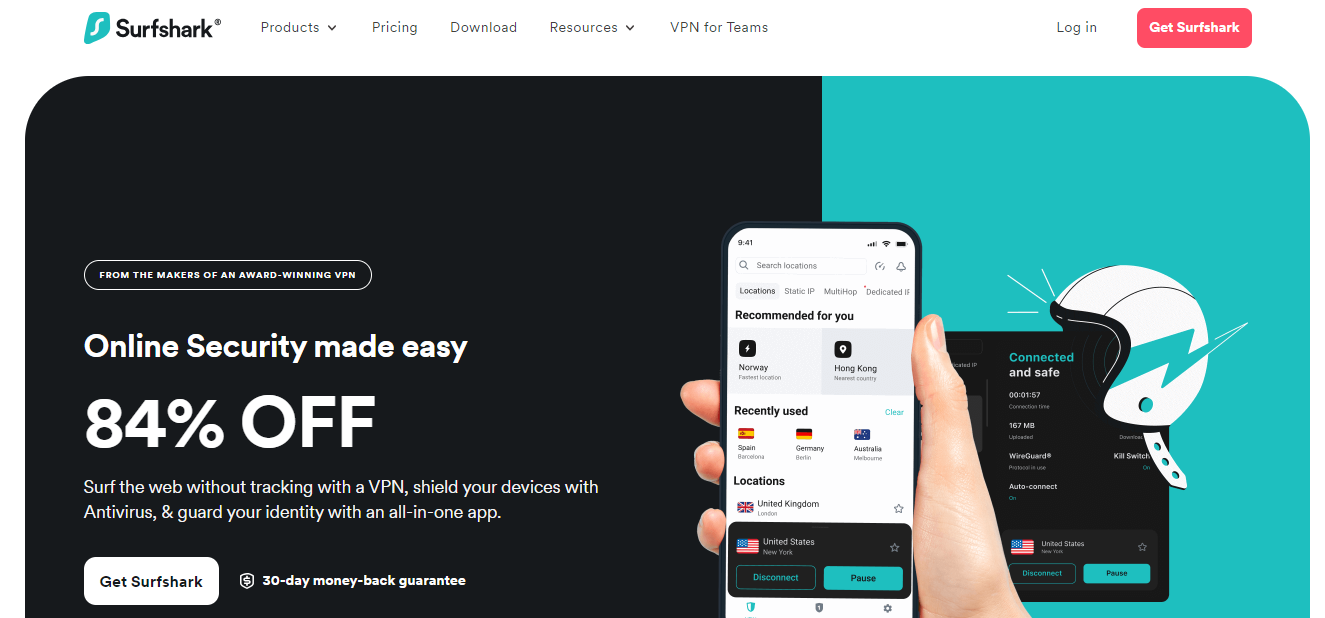 One of the top VPNs available in the market is Surf Shark, which is the least expensive VPN provider with top-notch services. Its characteristics are dependable and it offers a money-back guarantee. It is quick and efficient and offers a broad spectrum of security protection. It works well for surfing, playing games, and using apps. An outstanding app for streaming is Surf Shark. It may be used concurrently on an infinite number of devices. It is inexpensive and of good quality.
One of the top VPNs available in the market is Surf Shark, which is the least expensive VPN provider with top-notch services. Its characteristics are dependable and it offers a money-back guarantee. It is quick and efficient and offers a broad spectrum of security protection. It works well for surfing, playing games, and using apps. An outstanding app for streaming is Surf Shark. It may be used concurrently on an infinite number of devices. It is inexpensive and of good quality.
Its one drawback is that it lacks an eternal plan. Your location is now secret, and your data is secure and secured. It operates in 65 countries with about 3200 servers. Your identity is safeguarded. AES 256 encryption is included. It provides safe online browsing. You may get a free risk trial and an internet protection plan from it.
2. NordVPN:
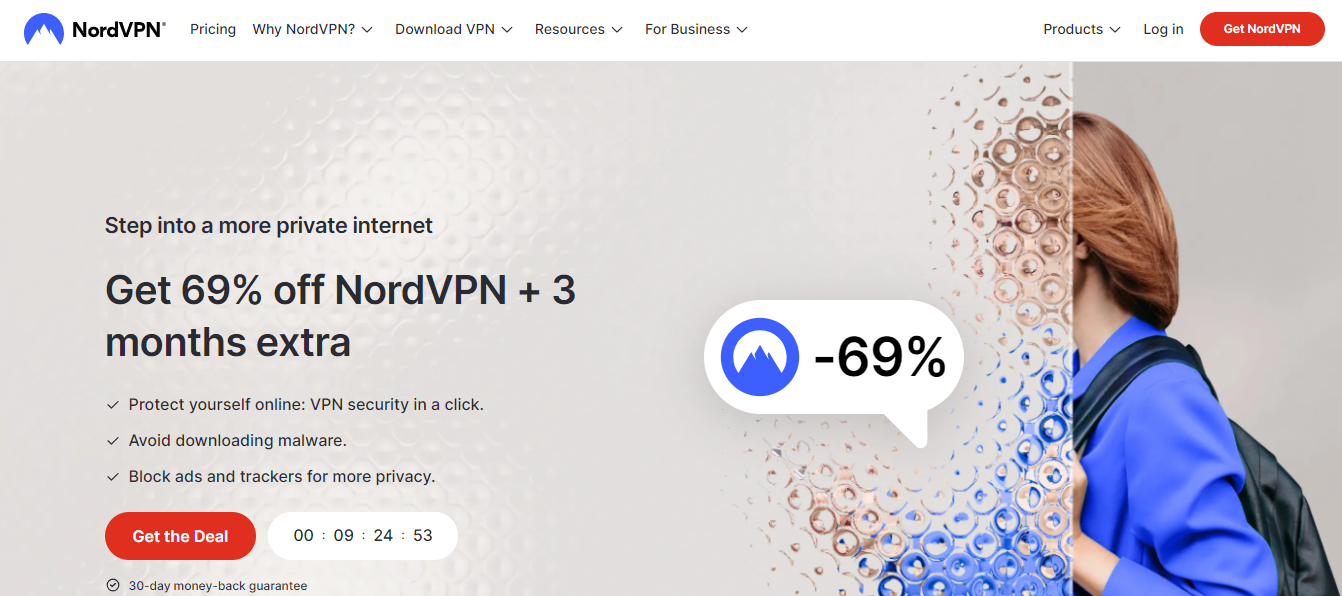 Nord VPN provides a very fast and reliable connection. Probably the greatest VPN you have is this one. It makes it simple to browse and view movies by enabling torrenting and streaming. It does not permit data saving and is totally safe. It has all the strong characteristics, such as a kill switch, dependable connection options, and split tunneling. A 30-day free trial is available. It offers limitless data and an ad blocker. The lack of a perpetually free plan is its lone disadvantage.
Nord VPN provides a very fast and reliable connection. Probably the greatest VPN you have is this one. It makes it simple to browse and view movies by enabling torrenting and streaming. It does not permit data saving and is totally safe. It has all the strong characteristics, such as a kill switch, dependable connection options, and split tunneling. A 30-day free trial is available. It offers limitless data and an ad blocker. The lack of a perpetually free plan is its lone disadvantage.
It doesn’t monitor or gather any information. The software is easy to use. There are 5500 Nord VPN servers spread over more than 59 nations. It provides services around the clock. It uses DNS protection to stop data leaks and provides strong security. This is the greatest service if you’re seeking peace of mind.
3. Atlas VPN:
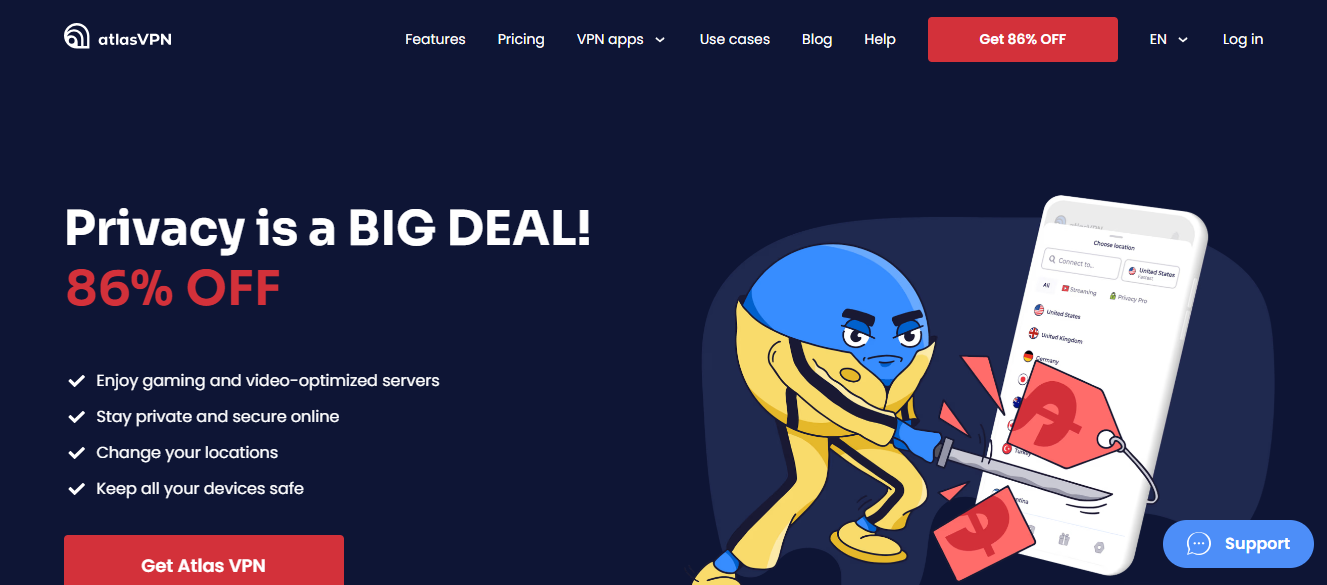 What a fantastic app Atlas VPN is. Its monthly data is 5GB. Numerous files may be downloaded, and streaming is possible. You may connect to three sites simultaneously using the free app. In addition, a kill switch safeguards the anomalies in any event. There is only one connection that your account may use. The Android version can reach 75 servers across 37 areas of the world and includes a tracker blocker and checker.
What a fantastic app Atlas VPN is. Its monthly data is 5GB. Numerous files may be downloaded, and streaming is possible. You may connect to three sites simultaneously using the free app. In addition, a kill switch safeguards the anomalies in any event. There is only one connection that your account may use. The Android version can reach 75 servers across 37 areas of the world and includes a tracker blocker and checker.
Because Atlas VPN uses secure protocols like IKEv2 and Wire Guard and uses AES-256 encryption, it is also secure. It offers 5GB of free data, a no-log policy, a tracking blocker, a data breach security check, and military-grade encryption. The one connection, mediocre speed, and US-only location are the drawbacks of Atlas VPN. The gadget is geared for mobile use. It offers email help around the clock.
4. Ivacy VPN:
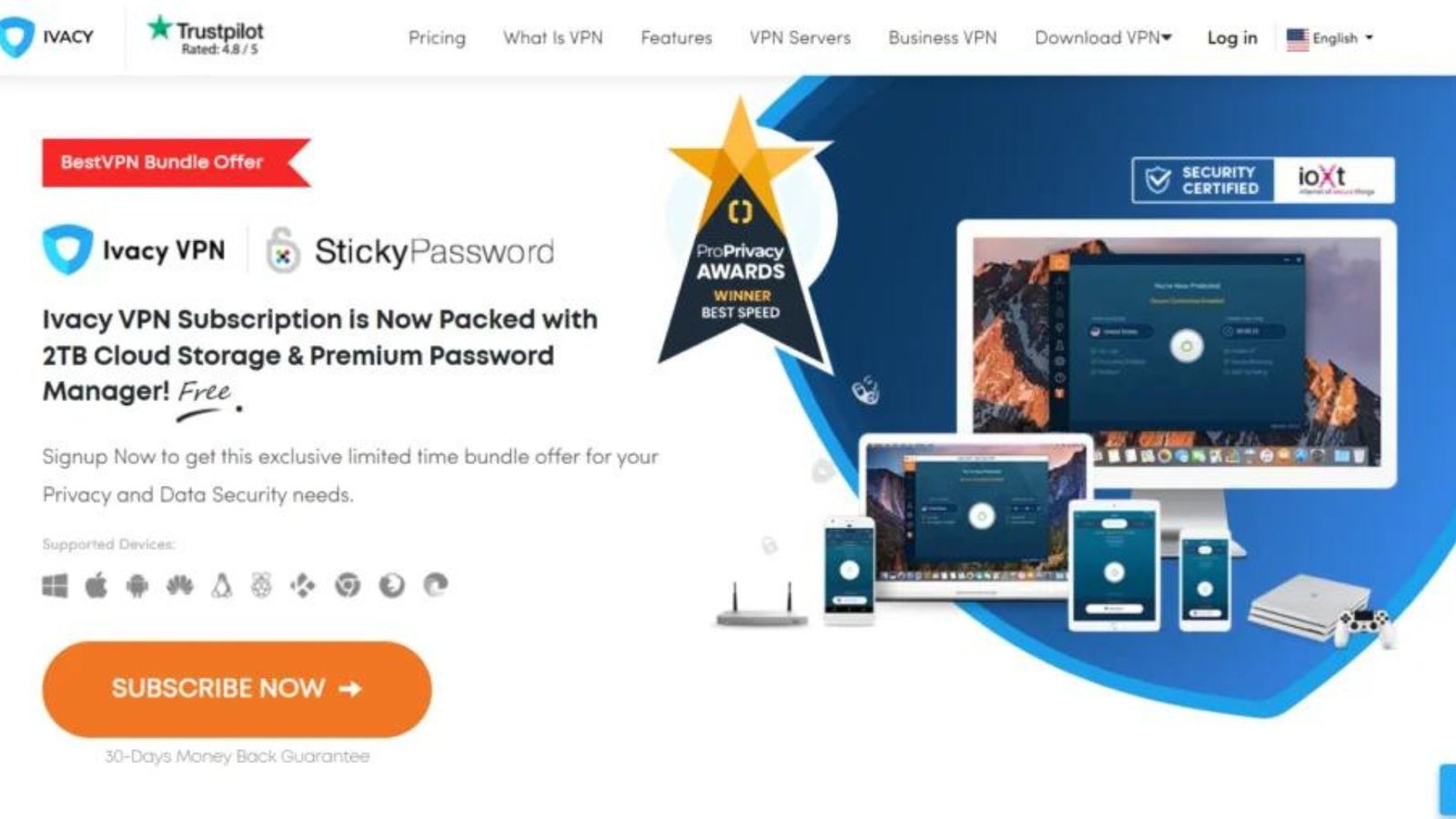 With an extensive server list, Ivacy VPN is a dependable and safe choice. This is a professional VPN service provider with more than 1400 servers spread over 75 different locations worldwide. It is the quickest VPN server and doesn’t save any records. Your data is safe, secure, and concealed thanks to this VPN’s top-notch AES-256-bit encryption. The Android app has a multi-port system, protocol security, and split tunneling. It is simple to operate. The slowest and least reliable wire guard is present in Ivacy VPN.
With an extensive server list, Ivacy VPN is a dependable and safe choice. This is a professional VPN service provider with more than 1400 servers spread over 75 different locations worldwide. It is the quickest VPN server and doesn’t save any records. Your data is safe, secure, and concealed thanks to this VPN’s top-notch AES-256-bit encryption. The Android app has a multi-port system, protocol security, and split tunneling. It is simple to operate. The slowest and least reliable wire guard is present in Ivacy VPN.
In 68 countries, it has more than 5,700 servers. Although there isn’t a free version available, there is a free trial. It offers ten connections at once and excellent data encryption. There isn’t a free trial available. On the other hand, you are free to end your subscription at any time. There are neither fees nor unidentified agents. The approach offered to consumers and organizations is very adaptable.
5. PureVPN:
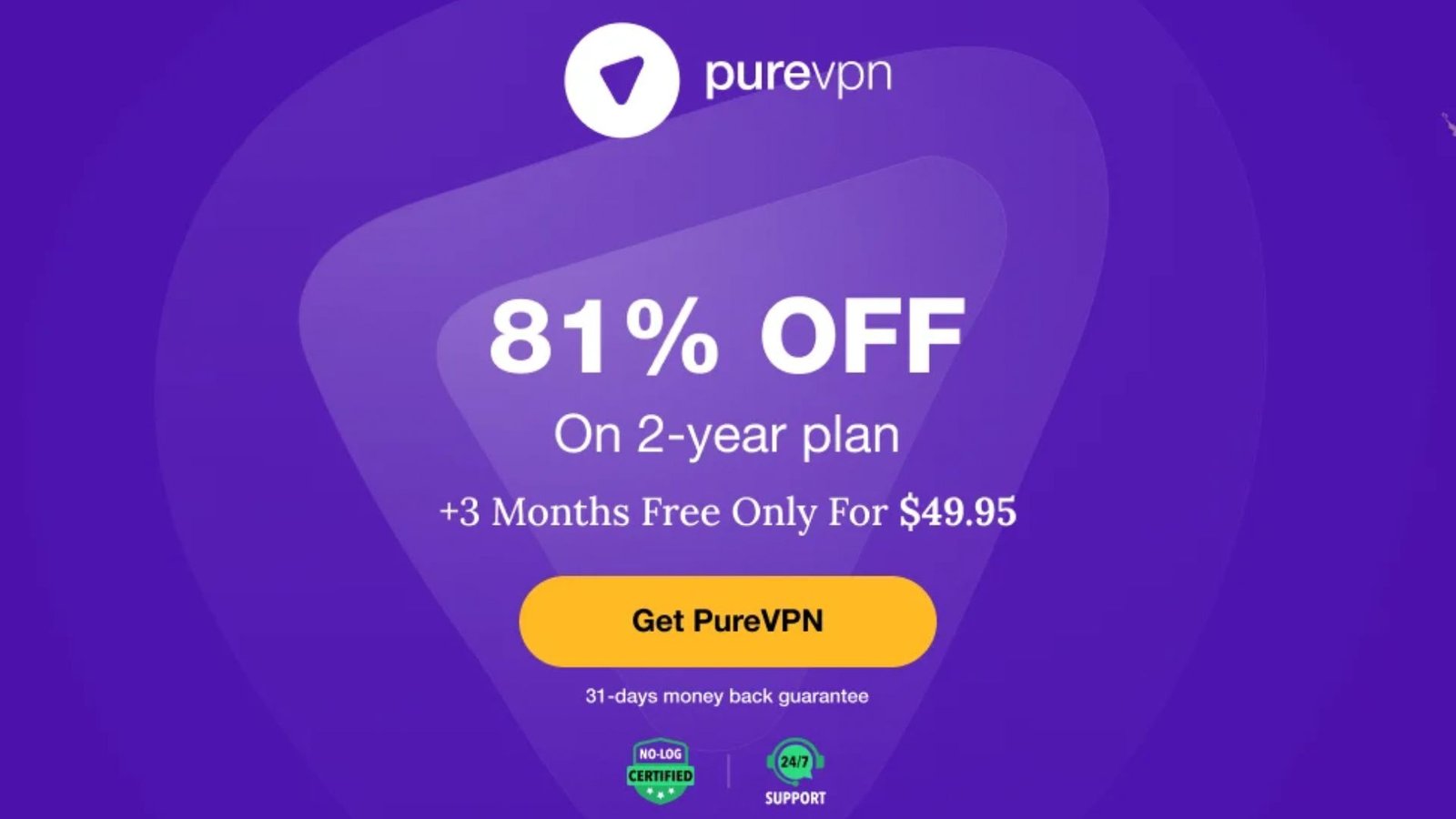 Since 2006, the British Virgin Islands-based VPN provider PureVPN has been operating. In the British Virgin Islands, data retention is essentially voluntary. User data is not stored by PureVPN. Several payment methods, such as major credit cards, Bitcoin or other cryptocurrencies, Alipay, CashU, and several more platforms, including Starbucks, Walmart, and other gift cards, are accepted for this VPN service.
Since 2006, the British Virgin Islands-based VPN provider PureVPN has been operating. In the British Virgin Islands, data retention is essentially voluntary. User data is not stored by PureVPN. Several payment methods, such as major credit cards, Bitcoin or other cryptocurrencies, Alipay, CashU, and several more platforms, including Starbucks, Walmart, and other gift cards, are accepted for this VPN service.
The Android app is user-friendly and packed with amazing features, like split tunneling, enhanced CyberSec malware protection, auto-connectivity to PureVPN upon WiFi network connection, and the lightning-fast NordLynx protocol. Additionally, the program offers a live chat facility for round-the-clock customer service. The most recent improvements include the WireGuard protocol, domain fronting, and obfuscation. Recently, it also introduced three new add-ons: PureKeep, PurePrivacy, and PureEncrypt.
6. Urban VPN:
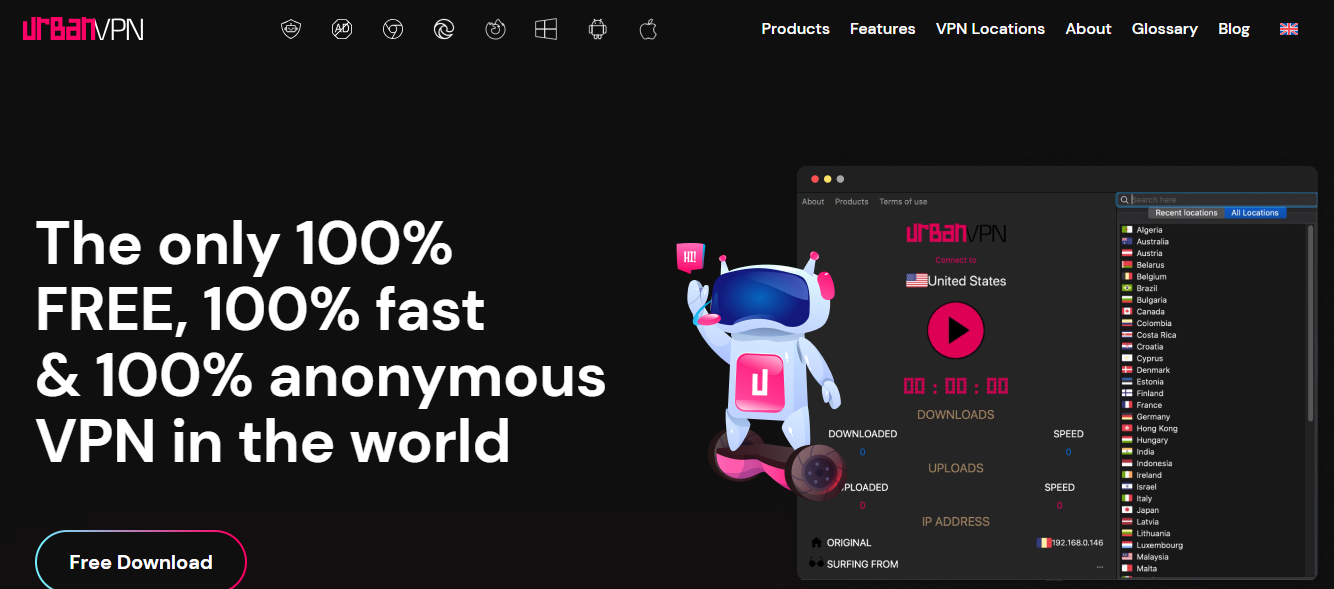 An intriguing new player in the free VPN space is Urban VPN. In an effort to finally convince users to upgrade to a premium membership, several VPN companies advertise their free version. On the other hand, Urban VPN offers a totally free service without even having premium options.
An intriguing new player in the free VPN space is Urban VPN. In an effort to finally convince users to upgrade to a premium membership, several VPN companies advertise their free version. On the other hand, Urban VPN offers a totally free service without even having premium options.
With its headquarters located in the US, Urban VPN was established in 2018. The service makes the claim to be a fully free VPN with fast speeds, limitless capacity, and anonymous connections. “The only 100% FREE, 100% fast & 100% anonymous VPN in the world” is their tagline. Indeed, it is quite a claim. Thus, VPNOverview was delighted to examine Urban VPN. Our Urban VPN review has the results, which you can read below.
In summary:
You may utilize a virtual private network, or VPN, for a variety of applications. There are several reasons why you would want to install it on your iPhone. For many additional reasons covered in the text, you may need to safeguard your connections, visit several websites, or for other purposes entirely.
When it comes to VPN use, turning it off is as crucial. Additionally, it can mess with where your social network accounts are located, etc. There are two methods we have covered to turn off the VPN. The first method involves using the iPhone’s settings on the device, whereas the second uses a VPN program.
Both approaches are viable; however, the initial approach is applicable to all VPN programs, while the latter approach is limited to those that include a ‘Disconnecting’ feature.

